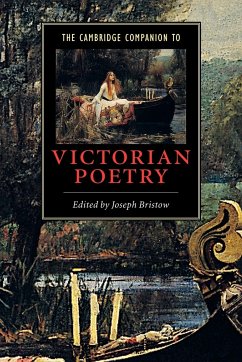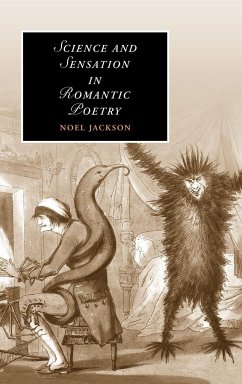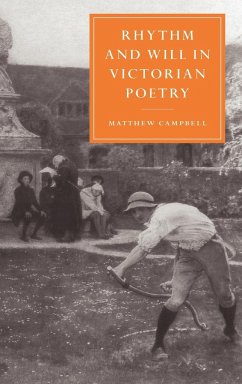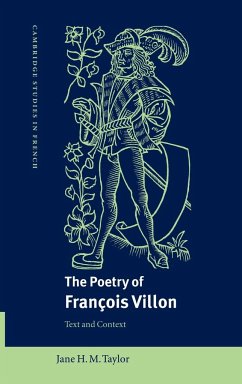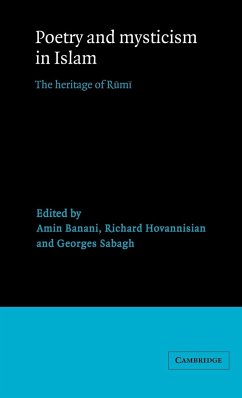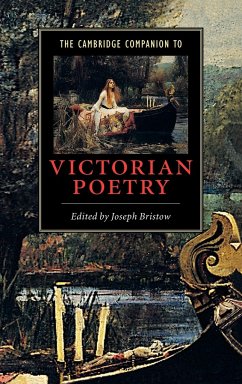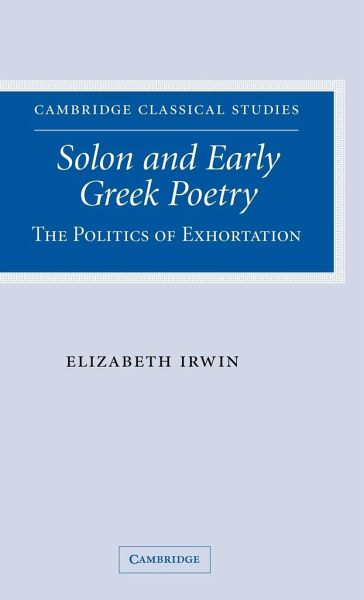
Solon and Early Greek Poetry
The Politics of Exhortation
Versandkostenfrei!
Versandfertig in 1-2 Wochen
124,99 €
inkl. MwSt.
Weitere Ausgaben:

PAYBACK Punkte
62 °P sammeln!
The poetry of archaic Greece gives voice to the history and politics of the culture of that age. This 2005 book explores the types of history that have been, and can be, written from archaic Greek poetry, and the role this poetry had in articulating the social and political realities and ideologies of that period. In doing so, it pays particular attention to the stance of exhortation adopted in early Greek elegy, and to the political poetry of Solon. Part I of this study argues that the singing of elegiac paraenesis in the elite symposium reflects the attempt of symposiasts to assert a heroic ...
The poetry of archaic Greece gives voice to the history and politics of the culture of that age. This 2005 book explores the types of history that have been, and can be, written from archaic Greek poetry, and the role this poetry had in articulating the social and political realities and ideologies of that period. In doing so, it pays particular attention to the stance of exhortation adopted in early Greek elegy, and to the political poetry of Solon. Part I of this study argues that the singing of elegiac paraenesis in the elite symposium reflects the attempt of symposiasts to assert a heroic identity for themselves within this wider polis community. Part II demonstrates how the elegy of Solon both confirms the existence of this elite practice, and subverts it; Part III looks beyond Solon's appropriations of poetic traditions to argue for another influence on Solon's political poetry, that of tyranny.





